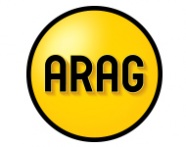Alternative Dispute Resolution

Authored by ARAG
Extreme times call for extreme measures and there can be little doubt that the crisis facing our court and tribunal system could reasonably be described as “extreme”. So, it shouldn’t come as a great surprise that the question of compelling parties in civil disputes to attempt some form of alternative dispute resolution (ADR) before troubling a courtroom, has reared its head.
One recent suggestion that compulsory mediation is under consideration has been voiced by no less influential a figure than Sir Geoffrey Vos, the Master of the Rolls.
In a speech reported in the Law Society Gazette, for the re-opening of a mediation centre at Hull University, Sir Geoffrey acknowledged quite how controversial the idea could be but made it clear that the Civil Justice Council was considering whether any forms of ADR could be made compulsory, under certain circumstances.
ADR has been around for decades, of course, and is often touted as the best route to swifter, more amicable and cheaper justice. ARAG has embraced alternative ways of resolving disputes since we opened our doors in the UK, back in 2006. Our commitment to providing access to justice is such that we are compelled to explore the best routes to dispute resolution, both for our policyholders and for society as a whole. Generally, where it is used, it is demonstrably successful.
Employment Tribunal claims, for example, must be referred to ACAS (the Advisory, Conciliation and Arbitration Service) before progressing to tribunal. Even then, a tribunal in England and Wales can prescribe its own judicial mediation scheme which, according to Sir Geoffrey, successfully mediates a settlement on the day of mediation in 65 per cent of cases, with even more settling between mediation and hearing.
Clearly, the opportunity to mediate resolution to disputes without the cost and delay of court or tribunal proceedings promises huge dividends for all parties, not least the cash-strapped Ministry of Justice.
Mediation is just one form of ADR. From ombudsman services to the dispute mechanisms offered by online marketplaces, a huge range of alternatives exist to help keep essentially legal disputes out of the various courts. The Official Injury Claim service launching at the end of this month is just the latest of these.
Between them, the existing alternatives to a ‘day in court’ help to resolve millions of disputes, any of which might otherwise find their way into our judicial system. But still the number of outstanding cases waiting for a court or tribunal hearing date has kept on growing, especially in 2020.
The backlogs across the spectrum of our court and tribunal services were not created by the pandemic. Budget cuts and court building sales had already drastically reduced the capacity of HMCTS to hear legal disputes. However, the coronavirus has exacerbated the problem to the point of crisis and innovative solutions are needed to stop the problem from getting worse.
Just last year, as the consequences of the pandemic were creating the potential for innumerable disputes between landlords and tenants, ARAG worked quickly with partners to develop an alternative legal route to resolving such issues.
Like any form of ADR, it may not be appropriate in every case, but the process has helped thousands of landlords and tenants reach mutually acceptable terms for sustaining or, in some cases, ending their rental agreements, when the normal legal routes were not open to them.
As the panelists on our recent landlord and tenant webinar explained, the challenges that Covid-19 has created for the private rental sector will be with us for many years. There isn’t a great deal we can do about that but, hopefully, we can mitigate the number of subsequent disputes that will need the attention of a court.
Whether or not the Civil Justice Council that Sir Geoffrey chairs will stop short of recommending compulsory mediation, remains to be seen, but it will need to suggest more than simply better promotion of ADR to potential users, as it has done in the past. Rebranding and fuller integration into legal processes will only achieve so much.
Perhaps the biggest boost to ADR take-up will result from the logjam in the courts. As the delays to get any sort of trial or tribunal date stretch from months into years, the opportunity to get a swifter resolution will make mediation and other forms of ADR seem more and more attractive, by comparison.
About ARAG
ARAG UK is a specialist legal insurance provider and is part of the internationally recognised ARAG Group which serves 14 countries worldwide.
Providing several emergency assistance insurance products and an innovative range of Before-the-Event and After-the-Event legal insurance products and services, ARAG UK prides itself on its client-focused approach. This has been recognised by the industry following the results of the Insurance 360 Legal Expenses Insurers Study in which ARAG UK was voted 'best legal insurance provider'. youTalk-insurance sharing ARAG UK insurance news.

